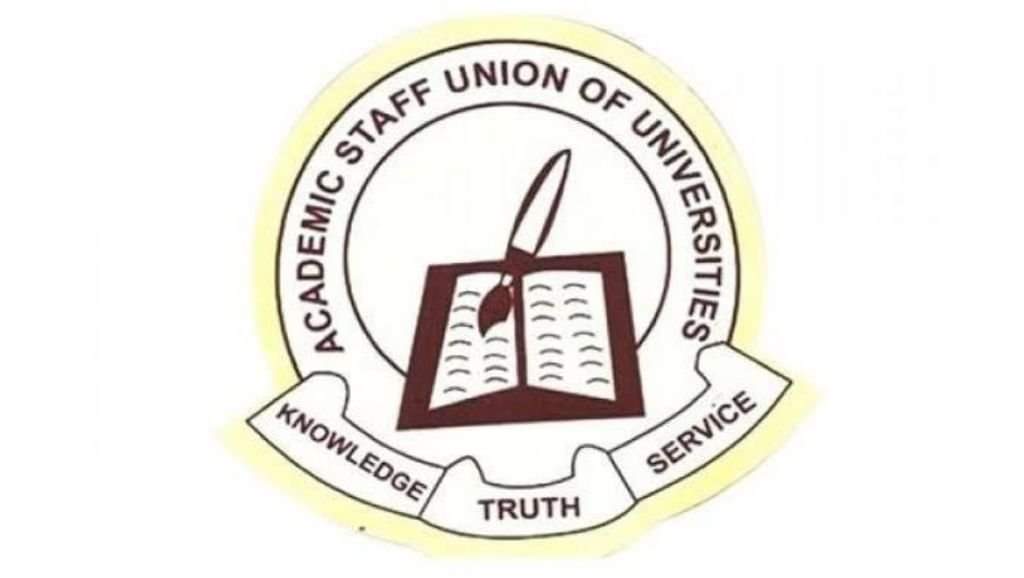— Olayiwola Folahan Festus
On the 14th of February 2022, The Academic Staff Union of Universities (ASUU) declared yet another strike, a month strike that was later extended by another 8 weeks.
So far, it has been over 60 days that our lives have been abruptly altered once again due to the irresponsible nature of those who are at the helms of affairs of the country.
A FAMILIAR FOE
ASUU strike action is no news to any Nigerian. As you are reading this, one or all of you, your sibling, your friend, your parent, uncle, or aunt have been affected in one way or the other by this anomaly.
According to statistics from StatiSense, “as at 2020, ASUU has spent 1,500 days on strike since 1999”. To put that into perspective, you would have been a graduate of a 4-year course if you go to school for only every day of strike within that period.
THE PROBLEM?
Since the declaration of the said strike, several unproductive meetings have been held between the Federal Government and ASUU.
Deliberations have typically been about the renegotiation of the agreement previously held between both parties that date back to 2009 when they agreed to review the conditions of service of ASUU after every 3 years.
The 2009 agreement emphasized the funding for revitalization of public universities. Certainly, there are structural and funding issues that need to be tackled decisively by the government.
Another pertinent demand from the agreement is the allocation of at least 26% of Nigeria’s annual budget to the education sector. But ASUU national president, Emmanuel Osodeke, says the demand remains unmet. “All our agreements with the government all these years have always contained the clause that government should progressively increase the allocation to the sector so that we can get to the international standard of 26% allocation to the sector. Unfortunately, instead of us marching forward, we are marching backward”.
Just recently, The Minister of Labour and Employment, Chris Ngige, unashamedly said to Nigerian students that the suspension of the strike depends on ASUU. In his words, “The ball is in their court.”
It is without a doubt that the Government has dealt with this critical issue in a manner that leaves so much to be desired. They come with serial lies about how “there is no money.” Instances like those above show where Nigerian Students rank on the priority list of our Government. This is disheartening.
IMPLICATIONS OF THE STRIKE ON STUDENTS
The Nigerian education system keeps frustrating ambitions and aspirations with the frequent culture of disruptions to the process of acquiring knowledge. Sadly, it’s the second industrial action in less than two years. The latest episode calls for concern and a rethink; this is the 16th strike since Nigeria’s return to democracy in 1999. Despite these actions, there is little to show for it. How disturbingly pathetic!
In the Nigerian context, a strike is seen as the last resort when all other efforts have proved abortive. It is common knowledge that the only language the Nigerian government understands is a strike. However, this action comes with some unpleasant effects on the affected sector. ASUU strikes have done more harm than good to the education sector with students bearing most of the accruing costs from the occurrences.
As a result of the regular strikes, the expectations, dreams, and visions of students are being frustrated and disrupted. Aside from the increasing rate of school dropouts, not a few citizens have lost hope in the Nigerian education system. Parents who can afford to send their children abroad for education are now doing so and those who cannot afford the bills register their children in privately-owned universities in the country.
In an August 2021 report titled ‘ASUU, FG bicker over unfulfilled agreement’ published by The Guardian, Nigeria loses N1.5 trillion per annum to overseas studies. Neighboring West African countries such as Ghana, Uganda, and the Benin Republic who were formerly not at par with Nigeria in the area of standard education now come across as better alternatives for Nigerians seeking quality education on the African continent.
From the north to the south, the conclusion on the attendance of federal and state-owned universities is troubling. Everyone believes children of lower-class citizens make up the mass of students attending these institutions. Apart from the aforementioned effects of long winding academic interruption, the quality of education dished to students is far from laudable. Regular strikes rob off academic time from school calendars and upon resumption, academics tend to rush academic work which might mean forgoing important parts of the course work. Ultimately, this has a knock-on effect on the intellectual capacity of the students.
Embarking on strike causes students to spend more time than the statutory duration in school. This has an effect on the employment pattern where age is an important consideration for entry-level jobs. An increase in youthful crime and immorality is not unrelated to the incessant ASUU strikes. The saying “an idle hand is the devil’s workshop” aptly describes the preoccupation of some youths while schools are shut. Lack of vision and mission makes a handful of youth wander about with no direction. Thus, engaging in all sorts of illegal businesses like cyber-crime, gambling, fraudulent acts, etc.
ASUU STRIKE AND WHAT CURRENTLY MATTERS TO THE FAILING NIGERIAN POLITICAL CLASS
The current leaders of Nigeria have failed in so many sectors of the country. The primary responsibility of the government is the protection of lives and properties. Buhari’s Government fails in securing lives and properties. It is not surprising that a government that fails in this sensitive sector also fails in every sector, including education sector which should provide the country with needed ideas and manpower for growth.
With the 2023 elections coming and the familiar but unworthy events in the messy Nigerian political scene emerging, it is known that the ASUU strike is nothing to the Nigerian Government. What is important now, to them, is not that the biggest percentage of Nigerian youths are at home, hopelessly waiting to return to classes. They only care about the elections and winning by hook or by crook.
GOING FORWARD: A CHARGE TO FELLOW NIGERIAN STUDENTS
At this point, it is important to note that when oppression is overburdened on the citizens, revolution is inevitable. The 2020 #EndSARS protest is a strong warning to our selfish leaders that Nigerian students are not lazy. We are, as we say in Ife, (Intellectual Fighter For Emancipation), conscious, vigilant, and progressive. We are resilient, innovative, rugged, and dogged. We are, to externalize the appellation of OAU, intellectual fighters for emancipation.
With the nonchalant attitude of the Federal Government to the plights of Nigerian students, Nigerian students shall soon take the bull by the horns and make what seems impossible possible within a short time, not minding how unpalatable to the government our steps would be. We have exhausted our patience, perseverance, and calmness. It is doubtful that the government will make hay while the sun shines and avoid Nigerian students unleashing terror to force them to do the needful.
Day by day; week in, week out, it becomes imperative that Nigerian students organize to demand that the Federal Government fulfil each of the terms of the agreement with the Staff Union and stop jeopardizing our future.
As the election approaches, not only are we going to upset the political engagements of the political class, we shall engage every aspirant on how they intend to address the crisis in the educational sector, most especially the frequent strikes of Unions, including ASUU, NASU, and SSANU, on our campuses.
I am calling on the Federal Government as a matter of urgency to attend to the demand of ASUU and to ensure students resume within the next two weeks.
Aluta Continua! Victoria Ascerta!
Olayiwola Folahan Festus is the President, Students’ Union, Obafemi Awolowo University.




